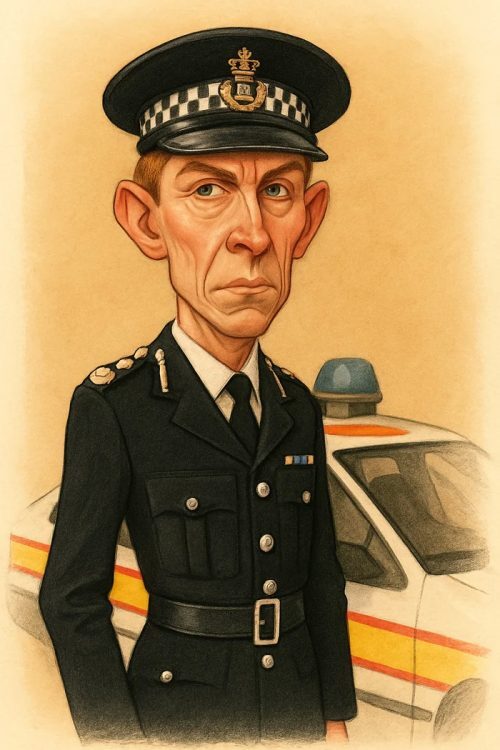Tim Pigott‑Smith: The Chief Constable Who Reshaped British Crime Drama
Early Life & Classical Training
Timothy Peter Pigott‑Smith was born on May 13, 1946, in Rugby, Warwickshire. His father was a journalist, and his mother supported his early interest in literature and drama. Consequently, he studied English Literature at the University of Birmingham before moving to train at the Bristol Old Vic Theatre School.
Following his graduation, he joined the Royal Shakespeare Company. Moreover, he tackled roles in *King Lear*, *Macbeth*, and *Cymbeline*. As a result, he gained a strong reputation for commanding classical theatre performances.
Career Before *The Chief*
Pigott‑Smith built a varied TV and film career before starring in *The Chief*. He appeared in *Doctor Who*, *The Jewel in the Crown*—as Ronald Merrick—and the mini-series *The Lost Boys*. Notably, his BAFTA win for *The Jewel in the Crown* in 1985 elevated him to national fame.
Additionally, he took supporting roles in high-profile films like *Clash of the Titans*, *V for Vendetta*, and *Quantum of Solace*. He also narrated documentaries and acted in period dramas, cementing his presence on screen by the late 1980s.
A Defining Role: Chief Constable John Stafford
Launching *The Chief*
In April 1990, *The Chief* debuted on ITV, with Pigott‑Smith cast as Chief Constable John Stafford. The gritty crime drama portrayed the fictional Eastland Constabulary. Moreover, it explored political tensions, policing challenges, and moral dilemmas. Importantly, Pigott‑Smith anchored the first three series with authority and subtle vulnerability.
The Character of Stafford
John Stafford was an idealistic but flawed leader. He navigated bureaucracy, Home Office pressure, and local politics. Yet, he also faced personal challenges and ethical conflict. Pigott‑Smith portrayed Stafford as a determined, yet often haunted man—balancing duty with compassion.
Style and Substance
The show emphasized realism over glamor, and Pigott‑Smith responded with emotional depth. He delivered complex dialogue with calm conviction and conveyed internal struggle through measured silence. As a result, Stafford felt three‑dimensional and true to life.
Reception & Legacy
*The Chief* earned high ratings and critical praise. Viewers described Stafford as a “breath of fresh air” among TV law‑keepers. Moreover, his unwavering integrity inspired later characters like George Gently and Catherine Cawood. In turn, *The Chief* helped shift crime drama toward leadership‑based narratives.
Expansion of Career After *The Chief*
Following *The Chief*, Pigott‑Smith’s career continued its upward trajectory. He appeared in *The Vice* as DCI Vickers and in *The Suspicions of Mr Whicher*. Meanwhile, his film credits included *Gangs of New York*, *Johnny English*, and *Bloody Sunday*. Each role benefited from the gravitas he honed in *The Chief*.
Later, he received acclaim in *King Charles III* on stage and screen. His filmography also included voice work and educational documentaries. Furthermore, his narrative roles brought warmth and authority to British TV and theatre.
Acting Style & Signature Traits
Pigott‑Smith excelled at portraying authority with nuance. He balanced command with inner fragility. His classical training ensured disciplined delivery, while his screen presence remained inviting and human. Thus, he appealed to audiences of all ages.
Awards & Industry Recognition
- BAFTA TV Award for Best Actor (*The Jewel in the Crown*, 1985)
- Laurence Olivier and Tony Award nominations (*King Charles III*)
- OBE in 2017 New Year Honours for services to drama
Personal Life & Legacy
Pigott‑Smith married Pamela Miles in 1972, and they remained partners until his death in 2017. He was also a published author—his books included *Out of India* and the *Baker Street Irregulars* series.
He passed away suddenly on April 7, 2017, while preparing for a theatre tour. His death was widely mourned. Critics fondly remembered his portrayal of John Stafford as a benchmark in TV leadership roles.
Legacy of *The Chief*
*The Chief* defined a genre. It balanced political insight with procedural realism and strong character arcs. Moreover, Pacific‑Smith’s controlled intensity as John Stafford inspired a wave of morally complex lead figures in shows like *Line of Duty* and *Grantchester*.
Final Word
Tim Pigott‑Smith’s portrayal of Chief Constable John Stafford showcased the power of thoughtful, grounded leadership on screen. His evolution from classical actor to crime drama lead remains a testament to both his talent and dedication. Even now, *The Chief* endures as a pivotal piece of British television history.
FAQ – Tim Pigott‑Smith & *The Chief*
- What is *The Chief* about? It’s a crime drama focusing on policing and political pressure in the fictional Eastland Constabulary.
- Which series did Pigott‑Smith star in? He led the first three series as Chief Constable John Stafford (1990–1993).
- Why was his role significant? He balanced political realism with emotional depth, altering the portrayal of authority on TV.
- What awards did Pigott‑Smith win? He won a BAFTA in 1985 and later received Olivier and Tony nominations.
- Is *The Chief* still recommended? Absolutely—it’s required viewing for fans of realistic, leadership‑focused crime drama.
